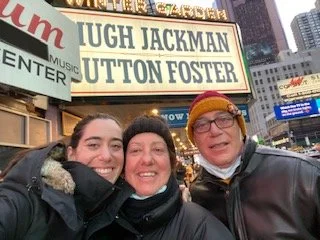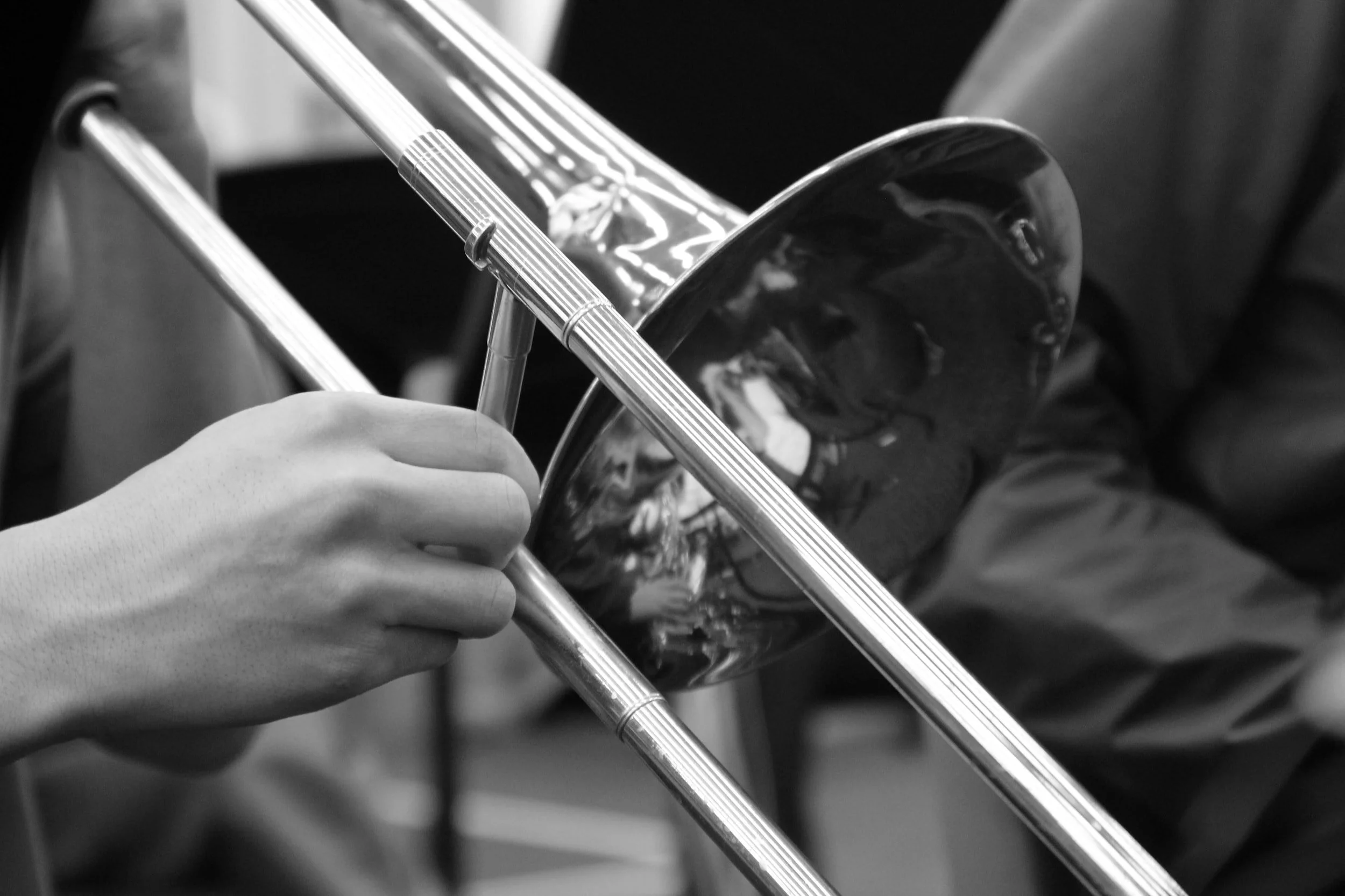#35 Learning from the Music Man
During a visit to New York City last January, our family was lucky enough to score previews for the revival of Meredith Willson’s The Music Man. It was a particularly frigid weekend as we strolled between the skyscrapers where the sun barely reached. As we walked by the lobby box office of the Winter Garden Theatre at 11.30 am, we saw a queue. Before we knew what it was for, we hopped on the end of the line.
The line was for rush seats for the afternoon performance of the play which was still in its preview run. The tickets were priced at 49$ each and many were partially obstructed views of the stage. Two were available per person and of course, no one would know who was actually performing for that show. We grabbed three tickets for the show that remarkably, neither I, my husband, nor my daughter had ever seen before.
At the Wintergarden photo by Leah Naidorf
The promotional literature touts the Tony award winning play as “one of the most universally cherished treasures of the American musical theater.” That hype is not wrong. Those very famous songs that I already knew like “Seventy-six Trombones” and “Till There Was You” originated in this classical musical. I’m not sure how I had missed it over all those years. To add to our delight, the matinee preview performance featured the stars Hugh Jackman and Sutton Foster.
The plot follows “Professor” Harold Hill, a traveling salesman who sells a small Iowa town on the urgent need for a marching band. He does this by, first, scaring parents with the looming threat that their children could be corrupted, and then pitching them a solution to prevent this exact fate. Of course, the town’s beautiful spinster librarian, Marian Paroo, sees through Hill’s scheme. She goes along with it, however, when she sees the infusion of hope and confidence that playing in the band has given her shy younger brother, who also has a speech impediment. Of course, seemingly against their own intentions, the two protagonists fall in love.
Perhaps the very “dated” nature of the story had it fall out of favor on the high school, college, and summer stock circuit. The “plight” of the unmarried woman, the harking back to life the way it surely used to be (monochromatic), and the pitch for the band (that is only for the boys of the town) feature prominently in the show. Of course, the modern-day cast features a mélange of skin tones in the cast, I presume the original plays and movies of “The Music Man” did not.
In the Playbill Magazine of January 2022, Ryan McPhee interviews lead actress Sutton Foster in a feature titled “Madam Librarian.” When asked about the driving force of the show, she responds, “The Music Man is about faith. That faith- the power of music to heal a community and revive a city – wins, which I think is so beautiful.” (p. 33)
I think that there is so much more to what the “Professor” does for the boys in the town who fall for the con of joining the marching band. Harold Hill sells the boys on the grand idea of belonging to the band, looking smart in their uniforms, and being honored by their parents and the townspeople. The boys borrow those ideas, from a person they believe to be an expert, and live into more confident and focused versions of themselves. Paroo sees this positive change in her younger brother and even when she finds out that Hill is a total fraud, she does not expose him. Exposing him would shatter the faith and hope that the boys have in Hill and the band. Defeated and dejected boys will not act with confidence and courage.
The boys are offered a chance to learn to play musical instruments and march as a band. They believe the con that Professor Hill has most laboriously set up. He offers them thoughts that they can do it and they believe him. They feel proud and confident. Their emotions produce their actions. They act to learn their instruments and march in their spiffy uniforms. They get into less trouble and their parents are proud of them. The boys think of themselves as competent and proud musicians. The thoughts of the boys matter even when they believe things that aren’t true.
Professor Hill gets a pass, of course, because he is handsome, charming, and falls in love with Miss Paroo. It’s a delicious confection at the Winter Garden Theatre, that for many reasons that I don’t fully understand, got unkind reviews in the press. From what I read, the reviewers judged that this production paled in comparison to previous iterations of the musical on Broadway and in film. From the perspective of a first-time viewer, I was not hampered by those comparisons.
I had many of the same thoughts and feelings that I had when I saw the most recent version of Hello Dolly. The old-fashioned ideas about a woman’s role in society permeate many of plays from the Twentieth Century. The author, Meredith Willson, was born in Mason City Iowa in 1902 and certainly wrote from his own experiences and observations. As the one-time principal flutist and piccolo player for John Phillip Souza’s band, he knew a thing or two about the magic of a marching band.
Highlighting the rigid racist and gender roles in ideas of society at that time and seeing them featured on stage might serve to show younger audiences what it was actually like in “the good old days.” Many notions of sexism and racism were absolutely normalized. If one thought differently, you hid it or conformed to get along. To begin to think and act differently, it helps to know where we started from. Our thoughts matter. Believing what you can become a doctor, an author, a golfer, or a flutist, is the first step in making it happen.




